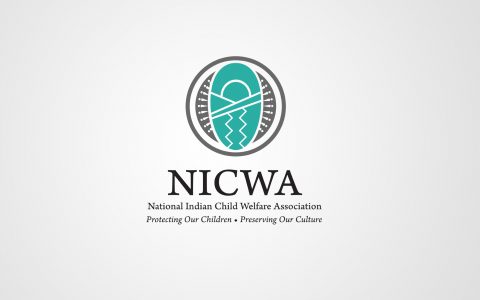
Ethics in Foster Parenting
Most of the time when we think about bad foster parents, we think of the worst case scenarios, those relatively few cases where the foster parents never should have been foster parents to begin with, and the children are abused or end up dead. And those are terrible tragedies. But they are also very rare.
There are other kinds of bad foster parents, though, foster parents who actually look amazing and loving and wonderful from the outside. I call these the “unethical” foster parents. Nothing they do is against that law. They often love the children they care for very deeply. But the damage they do to children is just as real.
Before we get into the specifics of the case I am talking about, let me be very clear about my biases. My daughter will never call me “Mom” or call my husband “Dad” because her previous foster parents fell into the “unethical” category. They made promises to my daughter they were not willing to keep. Even on the night they were leaving her (forever) at our house, they still referred to themselves as her “Mom and Dad”.
So yeah, I have a huge problem with people who make promises to kids, promises they have no right making. And kids in foster care are even more vulnerable to this than other kids, because they have had so much taken away.
You may have heard about Lexi, the child in California removed from her wonderful, loving, foster home (they wanted to adopt her!) to be placed with relatives in Utah. The “blame” for this is being put on the Indian Child Welfare Act. But that appears to be because the foster family hooked themselves up with a lawyer who has made it a career goal to mess with the ICWA.
I first heard about this story because a friend linked to an article on FaceBook. You can read that article here. The story itself is fairly biased in favor of the foster family. But if you have any experience with the foster care system, you can pick out clues, even in the bias, that will tell you that perhaps this family behaved unethically. And when you pick up on those clues, you look further, and you find this statement from the National Indian Child Welfare Association.
Now, your first thought may very well be that the NICWA is not exactly an unbiased source if the ICWA is under attack. And that is true. But notice that the statement from NICWA includes references to the actual case history. Yeah, facts.
Now, I am not a foster parent in California. Some of the procedures there may be a little different than where I am, but I doubt they are substantially different in any way that would make my reading of this case incorrect.
Lexi was removed from her parents’ care in 2011, when she was 1. She had two placements before she was placed with the foster family referenced. She was placed with her long term foster family in December of 2011. During that same year, extended family was contacted and became aware that Lexi might become available for adoption. Those family members expressed their interest in becoming Lexi’s permanent home.
What does this mean? It means that when Lexi was placed with her foster family, they KNEW that relatives had already been contacted and that relatives wanted to be considered as the permanent placement if reunification with the parents did not work. They KNEW this. How do I know they knew this? Because foster parents are given this information when a child is placed with them. Especially if they are thinking about being foster to adopt parents, they are given the information about the level of legal risk.
And at the same time they were being told about the extended family being interested in taking Lexi, they were also being told that she was covered under ICWA. That she had enough Native American blood to be covered by ICWA was not a surprise to the family. It was not something sprung on them after she had been with them for a year or two. It was something they knew going in.
Now, reunification is always the primary goal when a child comes into care. And from the NICWA report, we can see the reunification with the father was attempted, but it failed.
Sometime after that, the foster family informed their social worker that they wanted to adopt Lexi. The social worker told them that the extended family had already been chosen as the adoptive placement. Now, because the child was covered under ICWA, the social worker did say the tribe had chosen the extended family (versus the state) as the adoptive placement.
And that my friends, is how you then get a foster family finding a lawyer who wants to overturn ICWA to fight the placement decision. Because I can tell you, ICWA or not, the extended family would have been chosen as the permanent placement by any entity overseeing the child’s placement.
Yes, she was left in foster care while they tried for reunification with her father, probably because he was in California and trying to do reunification if she was in Utah not really possible. But that only means they were giving reunification the best chance possible, not that the Utah family was not the actual first choice for permanency from the beginning.
The fact that the relatives do not have any Native American blood is irrelevant. They are related to this child by marriage, which means them having custody of her keeps her in contact with her blood relatives. Over and over this has been proven to be better for children. Again, ANY entity overseeing this case would have chosen the extended family for the permanent placement.
But in this case, the foster family fought it. Despite there being a transition plan, despite contact from the Utah family (these are not strangers Lexi is going to – she has met them and Skyped with them on a weekly basis for quite some time), despite knowing they were a FOSTER family, this family chose to fight it.
And this is where the unethical part comes in. Any trauma Lexi is experiencing at this transition is because the foster family forced it on her. They made her promises. They made their other children promises. Promises they knew from the beginning they were not going to be able to keep. They dragged out the legal battle.
Lexi is going to live with family members who love her and are committed to her. This is the type of situation that most foster parents live for. It is a wonderful outcome – after a (good) reunification, about the best outcome foster parents can hope for.
Do I feel bad that Lexi is experiencing some trauma? Absolutely. But I have no sympathy for these foster parents. They knew. They chose to draw this out. They chose to inflict the trauma on this child, hoping it would get them what they wanted. The trauma Lexi is going through, the trauma their other three children are experiencing – it is all the direct result of their actions, not the fault of the ICWA, the Choctaw tribe, or the state.
The ICWA is by no means a perfect piece of legislation. But it remains an incredibly important piece of legislation. And this case, this case has nothing actually to do with the ICWA.




